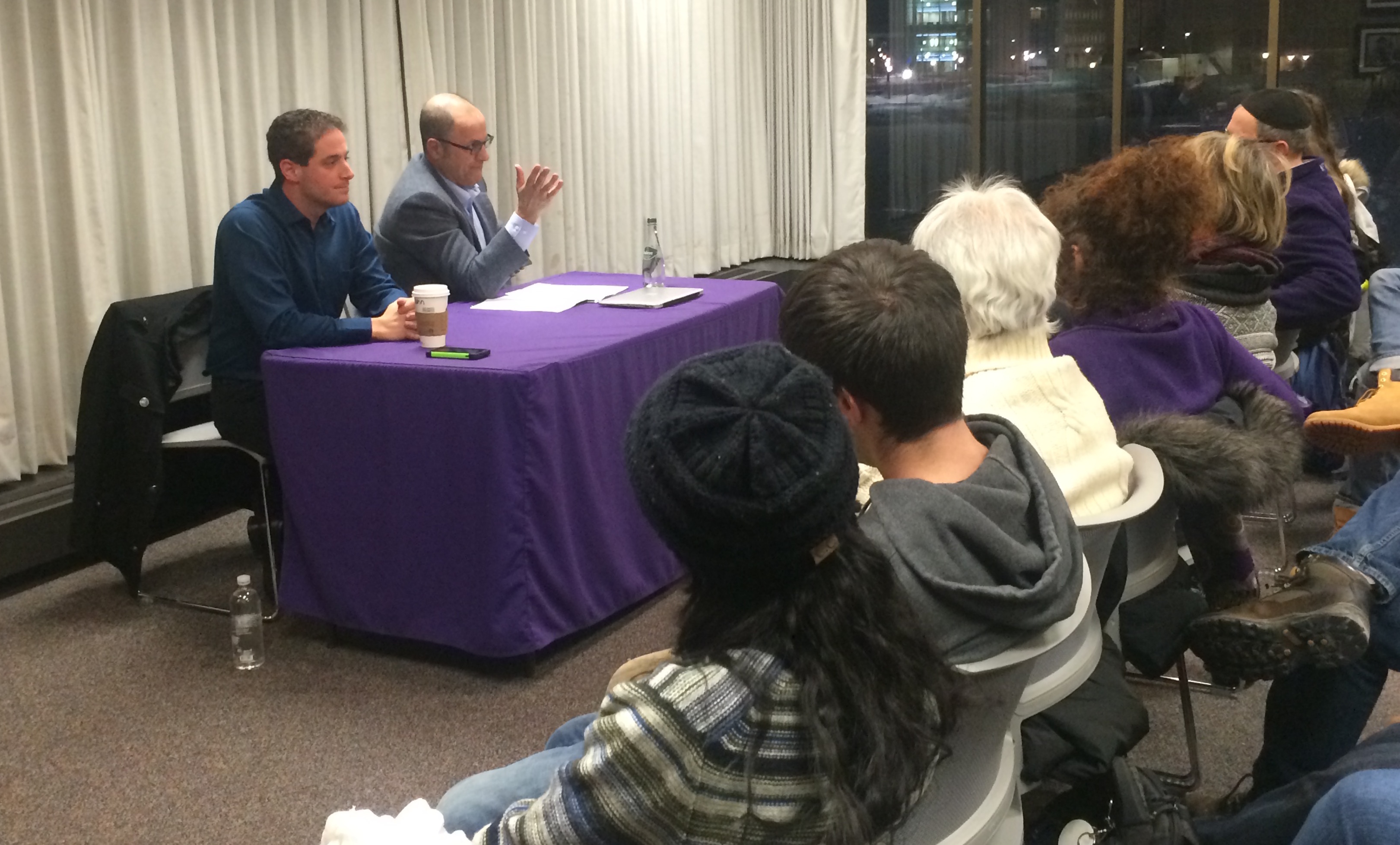
Photo by Megan Fu / North By Northwestern
Israeli debater and journalist Yoni Cohen-Idov and New York University professor Abe Haak spoke to an audience of about 45 in Norris as part of an event presented by Wildcats for Israel Monday night.
The event, titled Exploring Human Rights in the Middle East, aimed to “explore the web of human rights violations in the Middle East from Gaza to Syria," according to the event's Facebook page. Cohen-Idov and Haak focused particularly on the Boycott, Divestment and Sanctions (BDS) movement, a campaign that is "against Israel until it complies with international law and Palestinian rights," according to its website.
“[BDS] is something that must be resisted,” Haak said. “It will damage the University's reputation.”
After both Cohen-Idov and Haak each presented a brief introduction speech, the speakers took questions.
“The best delivery or presentation is in response to questions coming from the audience,” Haak said. “I hope I can contribute in some way to uncover the prejudice and the hatred that animates this movement against the Jewish state.”
Cohen-Idov, who self identified as a lifelong “peace activist,” initiated a national educational school debating system in Israel that allows Israeli students to talk about these issues with one another and “learn that even if you don’t agree with the other side, the other side has some legitimacy. No one has a monopoly over truth or a monopoly over justice, people should practice mutual understanding.”
“In Israel debating is not a thing, there was no word for debate in Hebrew, because the concept of a civilized argument was so foreign and unheard of,” Cohen-Idov said. “People don’t listen, especially if they perceive the other party to be the enemy or a rival.”
Cohen-Idov touched upon the “lack of context” that tended to happen with materials presented by BDS movements. The two speakers agreed that the BDS movement will not hurt Israel and said that the main danger of the movement is a domestic one.
“If five armies and the threat of annihilation couldn’t move Jews out of Israel, the BDS movement isn’t going to do it,” Haak said.
That being said, Cohel-Idov admitted that Israel had its flaws. “I am not going to defend things that Israel does that I don’t believe should be defended, Israel does its fair share of wrong, especially in times of war," he said.
Haak spoke in detail about his personal experiences dealing with the realization that what he was told growing up was not in fact reality.
“Year after year I’m trying to find an instance where a single acre was taken from a Palestinian and I could not find one because there isn’t one,” he said. “From this point I started peeling assumptions off like the skins of an onion. I did it all by myself there were no epiphanies or revelations where I met an Israeli or anything, it was all by myself scared and lonely over 37 years literally. Much of the Arab narrative I was fed was false.”
Wildcats for Israel (WFI) President Jonathan Kamel, said WFI wanted to have two perspectives to talk about the conflict, especially in terms of BDS.
“I think it went well, we always want to have events that show different perspectives,” he said. “It is important to have speakers from different backgrounds.”
Weinberg senior Tali Aizenmen met Cohen-Idov over the summer in Israel and says she enjoyed hearing him speak again, but wanted more from the audience.
“I think in general the audience was not as diverse as it should have or could have been," she said. "I wish it had had a little bit more diversity in opinion and backgrounds.”